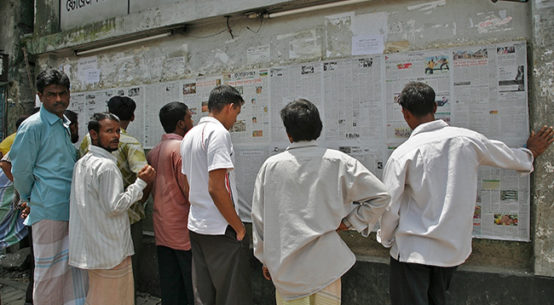
The Civil Society in Zambia have raised eyebrows over delays by the Zambia’s Government to enact the Access to Information Bill into law as it impedes media and public freedoms, a key tenet in a democracy.
The 24-member coalition argues that despite repeated assurances by the ruling United Party for National Development which ascended to power on 12 August 2021 on the bedrock of ensuring media freedom through a hasty enactment of the long awaited Access to Information law, little or no action has been taken to date to actualize the promise.
The Coalition in a joint statement authored by its chairperson and clergyman, Fr. Alex Muyebe (SJ), also Executive Director of a faith-based-group-Jesuit Centre for Theological Reflection (JCTR) had envisioned the Government expediting the tabling of the ATI legislation before June last year which has since come to pass.
It stressed that access to information is especially relevant, given the increase in size of the Constituency Development Fund (CDF), as a mechanism to tackle any form of malpractice and corruption and to ensure that the money of the Fund reaches its intended beneficiaries in local communities, a formula for fighting poverty among vulnerable households.
It noted that President Hakainde Hichilema-Zambia’s seventh President had in his address to lawmakers on 10 September 2021 assured of his administration’s resolve to enhance media freedom and access to information by the enactment of legislation, an actualization which has delayed.
Hichilema, then President-elect had hinted at his administration’s resolve to improving the freedom of expression and media environment in Zambia after years of decline. On August 16, President Hichilema pledged to co-exist with the media, assuring that his Government would not shut down nor monitor the media.
“The UPND government is not there to shut down Prime Television … (Prime TV), sorry about what happened to you,” he said in a television address to the nation.
“(Shutting down media houses) will not happen under our administration, you will operate as a business, and you know your obligations as a business. But no political hand will be there to shut down your business.”
In February last year, the ATI Coalition chided the UPND government for delaying the
enactment of legislation enshrining access to information. It emphasized the importance of this
law, considering that access to information is crucial to facilitating active participation of citizens
in democracy, and being essential to building a culture of accountability in Zambia.
In February this year, Minister of Information and Media, ChushiKasanda, had disclosed that Cabinet had agreed to a roadmap which would lead to the enactment of the Access to Information Bill by June 2023 but there has been no action on the matter, raising concern among players.
“This roadmap has not been given to Civil Society or to the general public. These promises have not been kept. June has come and gone and no movementon the enactment of ATI legislation can be seen. This is not surprising, as it has been said: they who fail to plan, plan to fail.” The statement read.
The Coalition noted the Government’s zeal to fight corruption, building a culture of transparency in Zambia and encouraging an active citizenry as stated in its 8th National Development Plan, and about nurturing a business environment that is competitive and investor-friendly, but doubts its sincerity about enacting ATI legislation which raises doubt among like-minded people.
“Failing this, stakeholders and citizens may begin to perceive the government in the same light as previous regimes who used empty rhetoric in matters which are of crucial importance to the nation and to society as a whole,” the coalition argues.
“This legislation is a foundation upon which any modern democracy must be built if it is to stand
tall in the company of progressive, leading, strong and proud African states.”
The ATI Coalition reiterates its resolve to working with the government and ensure the administration succeeded in its promises to enact ATI legislation. It calls on the government to take the necessary steps to make ATI law a reality after 30 years of waiting, adding: “Zambia looks to you. Now is the time!
Background to ATI
In 2002, an agitation to secure a law on ATI was mooted by some press freedom agitators led by lawyers John Sangwa and Sakwiba Sikota, Journalists, Robbie Makayi and Arthur Simuchoba, among other concerns.
There were concerns at the lack of free flow of information availed to the people. The media, tooremains restricted to accessing vital information in performing their role of informing the citizenry, being one of the key tenets of the role of the purveyors of news.
The advocates drafted arguments seeking it to be brought before Parliament for onward enactment into law, arguably to allow access to information and champion accountability and transparency by sitting Governments with the dawn of democracy from a 27-old-one-party participatory state.
On 22 November 2002, the Freedom of Information Bill (FOIB) was tabled before parliament. On 18 December 2002, parliament withdrew the bill for “wider consultation”. Since then, there has been various pledges to ensure the Bill was enacted into law, but successful Governments have remained elusive.
There has been a widely feared notion that should the ATI be enacted into law, there could be abuse of state security and that irresponsible media could use it for espionage with an aim to destroy the country.
However, interest groups have argued to the contrary that the media could abuse the right to access information and that it remains important to the Zambian population and without the law, the citizenry are denied a right to their freed of expression on many aspects of their daily lives including their socio-economic rights.
The media in Zambia faces various laws, drawn from colonial Governments before 1964 including sedition, which restrict media access to some documents that are vital for information dissemination and needs repealing to enhance freedom of the press and people’s freedom of expression on matters affecting them.
About the ATI Coalition
The Access to Information Coalition is an alliance of Civil Society Organizations dedicated to making access to information a reality in Zambia.
Constituted in 2011, the Coalition has worked towards a deepened public awareness of the importance of having access to accurate information, the value of a democracy in which government is transparent and accountable, and the necessity for Zambia to enact legislation and to advocate for constitutional reform which gives concrete expression to these principles.




